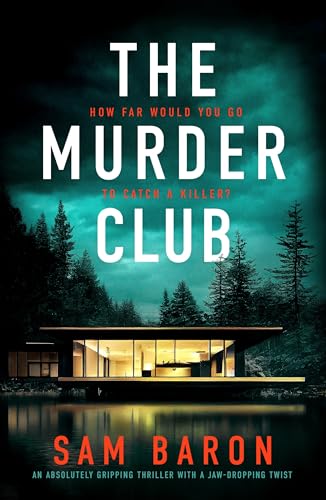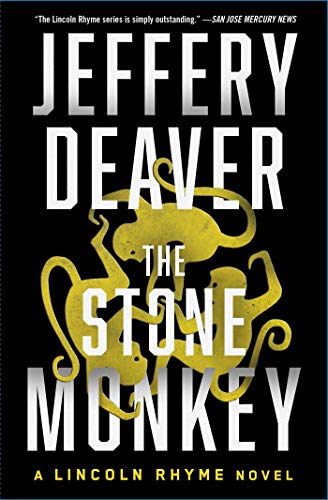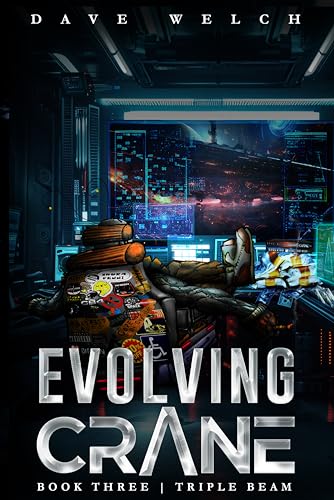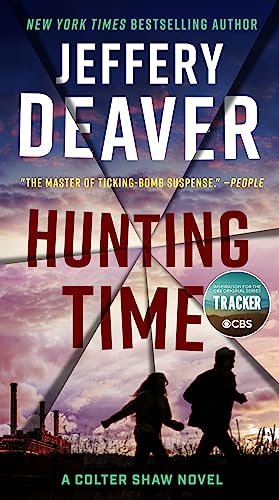Death of Secrets is a thriller about a terrifying new technology that could end the right to privacy forever. Kathy Kelver is a young woman who becomes a witness to a murder. Michael Vincent is a Congressman with a crucial vote on government surveillance. The two of them will find themselves running for their lives, trying to decipher a mysterious computer file before its secret kills them. If they fail, it will mean the Death of Secrets.
And here, for your reading pleasure, is our free excerpt:
CHAPTER 1
The moon hid behind a reef of dark clouds. A young woman named Kathy Kelver walked back to campus very late at night.
She saw a man get murdered.
There he stood, on the sidewalk, looking like he might go in to a basement apartment. And then he spun around, and screamed, and flung his arm out at a crazy angle until he landed on the ground.
A thundering report reached Kathy’s ears at almost exactly the same time. The gunshot sounded much louder than Hollywood made them out to be.
She did what most people would do, and screamed.
When she recovered her senses, she ran toward the man to see if she could help. She was a young and athletic woman; her strong legs carried her slender frame quickly. The dash caused her loose brown ponytail to flop behind her.
Wind howled down the narrow cobblestone street in Georgetown. It made the man’s words hard to hear. “Please…” He stretched out a hand to her. His voice was weak and his word was dragged out and barely audible.
She could only pray. Kathy grew up in the rural Rocky Mountains, and to her violent death was something that happened to deer in the fall, not to people.
He reached to her again, this time with the other hand. The hand was not empty.
It was a programmed response, not a choice. He wanted to give her something and Kathy accepted it before she even knew what she was doing.
Her fingers brushed his, and she nearly recoiled at how cold they were. But before her hand jerked back, the object passed to her. She recognized it right away; she had a few of them rattling around the drawer in her desk. It was a thumb drive.
“Jakarta,” the man croaked. “Get it to Jakarta.” A long, weak sigh slipped out of his mouth, and he repeated the word once more. His facial muscles went slack, and his head hit the sidewalk with a thump.
Kathy knelt there by the body, heart racing and lips trembling. “God help me…” she breathed, her voice trembling and on the verge of tears. She bolted to her feet and ran for the campus, intent on calling 911. The college senior was nearly as close to her dormitory as she was to any of the nearby houses, and fear drove her toward her own home, rather than a stranger’s. Her hand unconsciously clung to the flash drive.
Her dash back to her room teetered on the edge of panic. She pounded on the button for the elevator, paced back and forth through the whole ride, and tore open the door to her room as soon as she was inside. Ignoring her roommate’s distracted greeting, Kathy grabbed her phone from where she left it before work and dialed 911.
When the dispatcher answered, she blurted out her plight with words that ran together and tumbled over each other. After a promise that an ambulance had been dispatched to the scene, she was told to go back and meet them.
Handing the problem over to someone else did a world of good for Kathy’s mental state. She finally responded to her roommate’s agitated inquiries about what was going on.
“I found this guy on the way home from work,” she panted. “Shot. Dead, I think. I’ve got to go back there and tell the police what I saw.”
“No joke? Dead? That’s … Let me come with you, Kathy. You’ll need someone to hold your hand.”
Together the two young women returned to the scene at a much more rational pace. After meeting in their freshman year at Georgetown, they’d chosen to live together because they were both night owls, dramatically reducing the traditional roommate conflicts over when to turn the lights out.
But in other ways they could not have been more opposite. Kathy’s long legs meant that each of her strides covered nearly twice the distance of her roommate, Colleen’s. The shorter girl had blonde hair versus Kathy’s brown, cut in a bob above her neck while Kathy’s hung below her shoulders when it wasn’t up in a ponytail. Kathy was a performing arts major whose every step was graceful and efficient; Colleen studied computer science and always seemed a bit awkward when she moved. She had interrupted an online Call of Duty deathmatch to accompany her roommate to the body.
Outside the front gates of Georgetown University, the two girls made two turns on their way back to the corner where Kathy had found the man. Flashing red and blue lights greeted them.
Kathy ran up to the first man in uniform she saw. “I’m so glad you’re here. I was so scared. Is he dead?”
The officer turned to her with a chilly gaze and asked, “Are you the young woman who called the dispatcher?”
She nodded. “Kathy Kelver. I found him on the way home from work. Is he dead?”
“Miss, there was no one here. Are you sure you got the location right?”
***
Back in their dorm room, Kathy and Colleen opened a bottle of wine and poured two glasses. “I just can’t believe that,” Kathy said, for about the fifth time since they left the crime scene, or whatever it was. “He was right there! It’s not like I hallucinated the whole thing.”
Colleen gave her a long hard look. “Kathy, if you were anyone else, I’d ask some serious questions about that.”
“Colleen, don’t be a jerk. I’m telling you, I saw him!”
“I know, I know, I believe you. But I’m making a big leap to do it, OK?”
“How could he have gotten up and walked away?” Kathy stood up and paced, nearly spilling her wine. “He was hurt way too bad to walk. When I came home to call the cops, I thought he was dead.”
“You’re just lucky MPD didn’t ticket you for a false alarm,” Colleen said.
“Oh, and that really made me mad,” she fumed. “I can’t even believe they were suggesting that. And they didn’t even believe me when I told them about the flash drive. If only I hadn’t left it on my desk! I could just…” Kathy finished with a sound that was part sigh and part snarl.
“Look, maybe he wasn’t hurt as bad as it looked.”
“Then why did he give me that flash drive?”
Kathy jumped as soon as she said it, and ran to her desk. “The flash drive! See? Here’s the proof! I told you I didn’t imagine the whole thing!”
Colleen followed her over and looked at the flash drive. “There’s not a mark on it anywhere.”
***
Detective Sam Franken settled his ample rump onto the bench seat in his unmarked car. With a sigh, he put the sedan into gear and drove off. False alarms ranked very near the top of his personal pantheon of annoyances. Franken wasn’t lazy, exactly. If there was work to be done, he did it. But he was a hefty man, nearer to 300 pounds than 200, and lifting his bulk off the car seat involved a substantial effort. If he was going to exert that effort, he wanted results. He grumbled to himself, thinking he should have ticketed that little brat for calling in a false alarm.
But she possessed a certain quality of believability. He supposed it might be a hunch – TV cop shows always seemed to show police officers having those, after all – but whatever the reason he believed her story. There had been a shooting victim on that spot. The victim was just no longer there.
Oh, he was sure the girl had exaggerated a bit. Obviously there couldn’t have been such a bloody carnage, or it would have left traces behind when he left. To a young girl seeing her first gunshot, no doubt it looked much gorier than it had actually been. Still, it took a real effort to keep walking after being shot. Franken knew – a year ago he’d been shot on the job, and he hadn’t been able to do anything but lay there and scream for help.
So whoever had been shot there had been strong as an ox. Or, which seemed to Franken far more likely, the victim had been high as a kite when it happened, and was able to keep walking because his brain just wasn’t feeling the pain.
And that, in Franken’s eyes, practically closed the case. Well, as closed as it would ever be. Druggies shooting each other didn’t exactly have first claim on MPD resources. He’d open a file, notate it a couple times to indicate that no new evidence had been found, and eventually it would fade from memory.
But still, he thought as he turned onto Wisconsin Avenue, it was awfully strange to find a drug shooting in Georgetown.
***
Three men stood on a sidewalk beside a parked car. Behind them, the frantic rhythm of nightclub music made it through the doors they had left behind.
“Come on, D.W. Let me drive. You drank too much.”
“I’m fine, Mike.”
“You’re not fine.”
“You drank your fair share too.”
“Not as much as you. Let me drive.”
“Mike, this is a no-brainer. You’re a Congressman. I’m a lobbyist. If I get a DUI, it’s an annoyance. If you get a DUI, it’s the end of your career.”
For the first time since they left the club, the third man spoke, slurring his words. “Fair point.”
The first man, Mike, bit his lip and looked like he wanted to go on arguing. The teeth that showed as he worried his lower lip were gleaming white and straight, testimony to lots of money spent on orthodonture when he was younger. His blond hair was moussed solidly into place. He was a slender man, in good shape, and dressed well. But his politician’s trained smile was absent at the moment. He was too uncomfortable about his friend D.W. driving to smile.
Michael Vincent had been nursing two martinis all night. His friend had rather more than two. But the other two men were right about the logic.
Mike tried one more time. “I only had two drinks all night, D.W. I know you had more than that.”
“Yeah, and I weigh more. Trust me Mike. I’m fine. You know I’m right about this. I’m always right about political stuff. Putting you behind the wheel is the more unacceptable risk.”
D.W. Tilman was telling the truth about the weight issue. His 250 pounds were all sitting right on his waist. He had height to go with it, but not enough to disguise the fact that he drank too much beer and ate too much starch. His hair was far enough gone that he shaved his head bald. He stood in a permanent slouch that hid a couple inches of his height. He had a slightly pink tinted birthmark on the far right side of his forehead – like Mikhail Gorbachev but smaller.
“He’s got a fair point,” said the third man, apparently too drunk to remember that he’d already said that once.
Mike shook his head and reluctantly opened the passenger side door. Once they were all aboard, the car headed away from the nightclub and into Georgetown. The third man’s home was there.
Tilman and Vincent shared over a decade of history. Their friendship traced its roots to a time when they were both young idealists working in the trenches of American politics. Tilman gave Vincent his first campaign job, and taught him his first lessons about navigating the waters in a very treacherous business. In the years that passed, the older man’s career hit a rocky shoal, and he left politics to start his own company. But Vincent had never forgotten his old teacher.
They still made time to socialize regularly, but this night was about more than just catching up. Tilman’s company had a new electronic device they wanted to sell to the federal government. Vincent was a member of the House Intelligence Committee, which would authorize the funding to buy it.
“It’s a surveillance tool for the NSA, Tilman,” Vincent said as they drove. “That’s not going to be politically…”
The Congressman’s words cut off mid-sentence as they turned a corner. A driver coming the other direction was directly in front of them. The cars were inches apart at best, it seemed to Mike. He started shouting, “Holy…” but didn’t have time to finish as his friend slammed on the breaks and the screech of rubber filled the air.
Amazingly, they didn’t collide. Mike sat catching his breath for a moment. He was amazed to be uninjured, and tried to figure out what happened.
The other car had apparently swerved to the left. Between Tilman’s crash stop and the other car’s emergency turn, they had not hit each other.
Unfortunately, the other car had hit a tree instead of them.
When he realized that, Vincent threw open his door and ran to the other vehicle to see if he could help. He arrived at the driver’s side door, and reached down for the handle.
That’s when he noticed the pistol aimed right at his face.
His jaw dropped open. For a few seconds he was simply frozen in place, unable to move. Then he lifted his hands in the air and backed up slowly. Tilman, just getting out of his car, saw what was happening and swore loud enough to be heard, but stopped in place.
The man in the other car – the man holding the gun – stared at Vincent. “Your car’s undamaged, right? No need to call the police then, right? Trust me on this: if you call them, I will know. And I will kill you.”
With that he backed away from the tree and stomped on the gas hard enough to make his tires squeal. He sped away.
Tilman ran up to his friend. “Mike… what just happened?”
“No idea,” the Congressman replied. “Not one clue. That was crazy. Guy pulls a gun on me out of nowhere.”
“The guy’s right about calling the cops. It’s like I said: you are a Congressman.”
“Yeah, and you should’ve let me…”
Tilman held up his hand to stop Mike. “No one likes a guy who says ‘I told you so,’ Mike.”
***
Kathy stood aside as Colleen popped the mysterious flash drive into her desktop PC. For things like this, Kathy always yielded to her more technical roommate. Her use of computers included social media, online videos, and e-mail. She was aware they could do more, but wasn’t sure why anyone would care.
Colleen, on the other hand, had built nearly a whole life around them. A computer science major, she wrote most of her own software and was perfectly secure in the knowledge that she’d have a high paying job in two years writing code in California or Seattle. She had a much more active social life online than she did on campus. Now, she settled back in her chair and peered intently at the screen.
“Well, there are several files on it, but I’ve got no idea what kinds,” she said after a couple moments of clicking and typing. “They’re probably either binary or encrypted – possibly both. Let me hack on it for a while, and see if I can find anything else out.”
With a sigh, Kathy rose from her chair and began pacing the room. From long experience, she knew she’d have trouble getting any more intelligent conversation out of Colleen until she either knew what was on the flash drive or had given up on it.
Colleen clicked a few icons, and the jarring beat of the latest in electronic dance music poured out of her speakers. Intrigued, Kathy found her feet wanting to dance. “Nice tune, what is it?” she asked.
“Uh, not sure. Some new techno rave stuff. I swiped it off a torrent. Quit bothering me if you ever want me to learn anything from this.” Colleen turned back to her screen.
Kathy shrugged and turned away. Colleen’s ability to get free music was the one thing that gave Kathy any desire to learn more about computers. For a kid working her way through college, free sounded way better than 99 cents a song. But it was obvious her roommate wasn’t in the mood to teach her about it tonight. With nothing to do but wait, Kathy gazed longingly at her bed, but didn’t go to it. There was no point. Adrenaline coursed through her veins from the incident, and she knew this night held no sleep for hours yet. Pacing gave way to rehearsing a few steps of her composition for modern dance class, and then to an attempt to read. Nothing held her attention for long, though, and soon enough Kathy was back to watching Colleen at the computer.
Colleen never even noticed. She alternated between long periods of staring off into space and moments of furious typing. After an hour, though, she stood up. “I don’t know what it is, and neither does anyone else I asked. Heck with it, let’s go to bed.”
Kathy pointed at the window, where the sun peeked over the athletic field. “Might be a little late for that.”
Colleen grunted. “Pull the shades, then. I don’t have class ‘til noon, and I’ll need some sleep before I go.”
***
Early Wednesday morning, D.W. Tilman’ car pulled up at the gate to the Electron Guidewire compound, one of dozens of high tech businesses located in the northern Virginia suburbs along the Dulles Airport Access road. He drummed his fingers as the guard cleared him through. He knew the security procedures were necessary; he just didn’t like having to wait for them. Patience came even harder to him when he’d been out ‘til two in the morning and not had any sleep.
A retractable panel sealed him off from the driving compartment of the limo, and for the hundredth time Tilman berated himself for driving himself last night instead of calling for the limo.
When the car pulled up at the curb he could see his building out the side window. The architecture lacked soul, he knew. It was a four-sided glass box in the tradition of modern, utilitarian construction throughout the Washington D.C. metro area. But in a way that pleased him. It was efficient and functional. Tilman liked function. He didn’t entirely approve of wasting hard-earned money on frivolous things.
He let the driver hold his door open. Tilman didn’t carry a briefcase, so he walked unencumbered toward the front door of the Electron Guidewire building. His hand-tailored navy blue suit succeeded in hiding his growing paunch. The electric door slid open to welcome him, and it was the only welcome he wanted. He nodded away the security guard’s wave of greeting, and strode directly to the express elevator, which he boarded and rode to the fifth floor.
The entire fifth floor was dedicated to the executive offices – mostly his. He didn’t want a lot of people working in the same area as him. The only other people who worked on this floor were his executive assistant and his chief of security.
Tilman knew from the moment he thought of going into business, that he would work largely on federal contracts. He knew how to get those – knew the right hands to shake and the right backs to scratch. But when you did work for the intelligence community, they expected you to be able to keep secrets. So he’d hired a security chief as his first employment decision, and kept him around ever since. He was a former federal agent, and he’d done very well at shepherding Tilman’ company through the industrial espionage so common these days.
His assistant smiled and greeted him by name as the security guard downstairs had. This one Tilman took the time to return with a smile of his own. He was much closer to his secretary than he ever would be to his security guards.
She was new on the job – had only been with him for a month, in fact. But then, few women lasted longer than a year in this job, and most, less than that. By successful application of large quantities of cash, he managed to avoid any lawsuits about it.
His office stretched the entire length of the building. Every morning Tilman debated the merits of this huge space. It was a pain to enter the room and still have a long walk before he reached his desk. But on the other hand, the effect on visitors was always the same: awe, intimidation, and respect for the man behind the desk at the far end.
He couldn’t help but smirk. In his political days, he’d worked out of a cramped office with two telephones going at the same time all day while three people tried to talk to him in person. He’d worked from sunup until long after sundown, and been sweating through the whole experience. In every way his current life was an improvement. In every way but one: politics had the feel of destiny to it. Working on a campaign made people feel like they were going to change the world. Tilman frowned about that for a moment, missing the old days. With the regret came the usual anger – anger at the people who’d robbed him of his role in politics. But shortly he reminded himself that he could change the world from here, too. A thin smile crept over his lips.
The walls of his office were paneled in walnut, and a long conference table of the same wood occupied the front half of the floor. But the room was dominated by the giant video screen that filled one entire wall. It, like the lights, was hooked to motion sensors that detected his presence in the room. The lighting slowly came up to a comfortable level as the screen showed a soothing pastoral scene.
He made it to the desk and sat down. In the time he’d been gone, employees had e-mailed him three different status reports, all on different projects. One of them covered the GigaStar project, the one he’d been discussing with Vincent last night.
GigaStar was a network surveillance device for the National Security Agency. It monitored traffic on any network to which it was connected. It transmitted data about all that traffic back to the NSA. It was faster, harder to detect, and harder to interfere with than any current technology. It could connect to a wireless network from a much greater distance than anything else on the market, which would make it harder for the people being monitored to spot.
In short, the GigaStar was a technical work of genius. There was only one problem: in the current political climate, making the government more effective at surveillance was politically unpopular.
Hugely so, in fact. The NSA had risen to compete with the IRS as America’s most unpopular government agency. Revelations that they monitored the private phone calls of American citizens, as well as their e-mails, were still making waves in the media and Congress. That made what should have been an easy sell into something that required expert lobbying.
Tilman smiled at that. He never hired a lobbying firm. With his contacts, he could do it himself. Now, in the crucial days before the Intelligence Committee vote on GigaStar, all the members received the full effect of his charm. Allies got fun evenings out on the town, like the one with Mike Vincent last night. Opponents got power lunches with him and his top staff, where they could be bombarded from all sides with rosy information about the GigaStar. Next Monday, members of the committee were invited over here for a last minute breakfast presentation before the vote. Tilman considered himself a master of arm twisting, and not without reason. Whatever had been taken from him when he’d been driven out of the campaign world, his skills and contacts were still there.
He closed that report, and moved on to the next. His schedule didn’t call for any interruptions until much later, so he could finish reading the e-mail and still have time for his assistant before real work began.
Unfortunately, the security chief disappointed his plans, walking in without knocking. Tilman sighed. Of all the people who worked for him, only the security man would do that. But the man wasn’t a total dunce – he never walked in unannounced if the secretary wasn’t at her desk.
He straightened in his chair and prepared to hear whatever the worry of the week was. The security chief looked grim, but then he always did.
***
Nathan Jacobs eased his chair back until he could sling his feet up onto his desk. He felt like crap. Sitting up straight was too much effort. For the tenth time that morning, he swore off alcohol forever.
He’d been out drinking with his friends Mike Vincent and D.W. Tilman last night. By the time they left the night club, he’d already been feeling rough. Then came the near-accident. He’d been laying down in the back seat when it happened. He’d slid off the bench seat and been jostled so bad he threw up.
I’m never drinking again.
Jacobs tried to make his mind focus on work. He was employed in the government office that protected key portions of the nation’s electronic infrastructure from electronic attack.
In the years since September 11th his office’s name had changed so many times he’d lost count. They performed an intricate bureaucratic ballet, shuffling back and forth between the FBI, the Department of Homeland Security, and now the National Security Agency. It seemed to vary with the political outlook of whoever sat in the White House.
Whatever one called the office, they had oversight duties over many government and private entities involved in information assurance. That was a fancy way of saying they helped stop computer crime.
Nathan Jacobs was one of the government’s top hackers and he loved his job.
There were times when he wondered if it was too much. There were times when he wondered if the things said about his agency in the press and in politics might have a point.
But right in the middle of a massive hangover was not one of those times. He tried to force his eyes into a shape that could see the text on his computer screen.
A report from a major corporation about a possible attack was on his screen when one of Jacobs’ people walked in. “Got a hot one here. One of our decoys got hacked late last night. He was there for ten minutes.”
One of the initiatives Jacobs had spearheaded upon taking office was to drastically increase the number of decoy computer systems the government employed. They were computer systems designed to look like naive, innocent home users to lure hackers in. Once the criminal broke into the decoy machine, though, the NSA could track his every action.
Jacobs clapped his hands together and grinned. “Great! I knew that idea would pay off. What did we catch him at?”
His subordinate shrugged. “Nothing really. Just surfing and chatting.”
Jacobs nodded. “OK, that’s a start. I want him watched, obviously.”
***
At eleven forty-five, Kathy showered and got ready to go to class. As she washed her hair, Colleen stood outside the shower door and yelled something about taking the flash drive the computer lab to check it out.
That flash drive spoiled Kathy’s entire day. In acting class she missed a cue, forgot three lines, and actually tripped walking across the stage.
It wasn’t just her acting class. Kathy’s work was all off in her courses. Since the incident with the police, her mind stuck to the dead man, and the mystery drive he’d pressed into her hand. She endured criticism and raised eyebrows from her professors. She slumped against the wall of the elevator as it carried her up, then trudged down the hall to her room.
The door hung wide open, swinging in a light breeze. Kathy knew that she’d closed and locked it when she left.
Continued….
Click on the title below to download the entire book and keep reading Bowen Greenwood’s Death of Secrets>>>>















